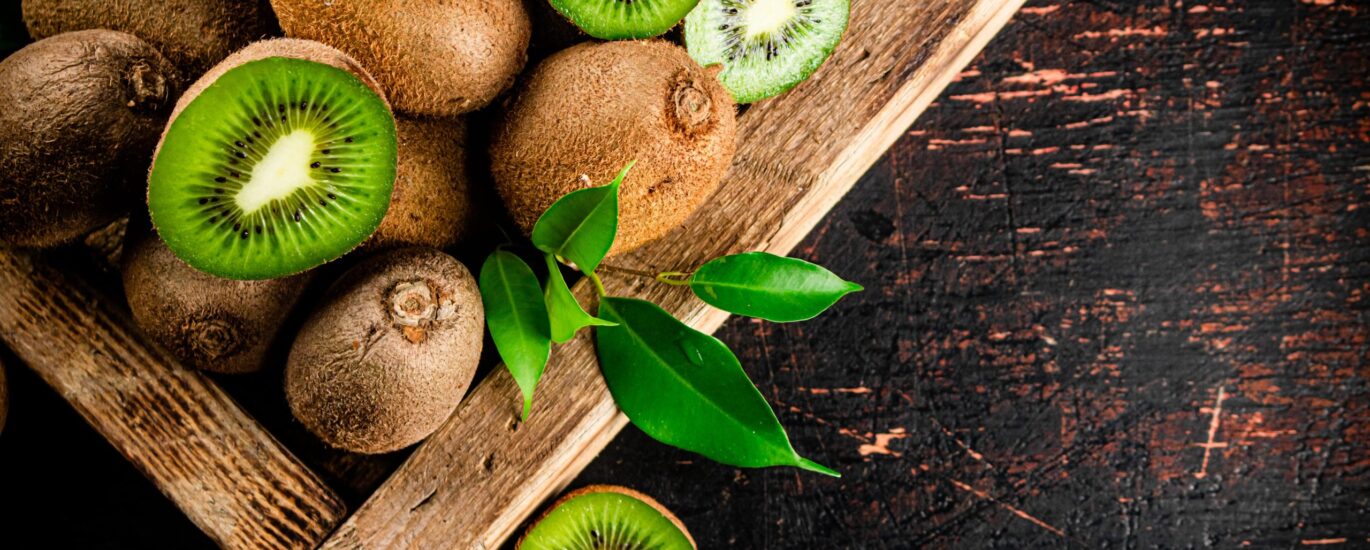


kiwi in pregnancy? Are you pregnant and are you super vigilant about what you eat?
You must.
Pregnancy is a marvelous journey time during which one or more offspring develops inside a woman’s body. It is one of the super lovely experiences in a women’s life. It gives birth not only to a baby but also give birth to a mother and starts a journey of motherhood, one of the unexpected journeys of life.
Kiwi fruit is beyond other commonly used fruits, for its nutritional and healthy goodness. Compared with other commonly used fruits, both green and gold kiwi fruit is exceptionally rich in vitamins C, E, K, folate, carotenoids, potassium, fiber, and phytochemicals which act all together to achieve multiple health benefits. Kiwi fruit, as part of a healthy diet, increases high-density lipoprotein which is good cholesterol, and decreases triglycerides, platelet aggregation, and high blood pressure.
Consuming gold kiwi fruit with iron-rich meals improves iron absorption and hence maintains good iron status, and green kiwi fruit aids digestion and relieves constipation. As a rich source of antioxidants, kiwi fruit protects the body from endogenous oxidative stress. Kiwi fruit supports immune function and reduces the incidence and severity of common illnesses like cold, flu, etc. This fruit with its multiple health benefits has the budding to become part of our “daily healthy diet for health.”
Kiwi fruit — also called Chinese gooseberry is packed with vitamins and minerals. This fruit often called a nutritional powerhouse, is rich in folic acid, potassium, dietary fiber, vitamin C and E, carotenoids, antioxidants, and trace minerals. It is low in sugars (compared to many other fruits) which helps in maintaining blood sugar levels in normal ranges.
The answer is definitely yes. Unless there is no allergy found. It is very good and safe to include kiwi fruit in pregnancy.
Kiwi fruit or Chinese gooseberry is a fleshy, green, and golden-green fruit that is packed with plenty of health benefits for pregnant women with its fact that it is delicious to eat.
The only reason you may need to avoid it is when you are susceptible to gastritis or heritable allergy. Eating 2 -3 kiwi fruits each day is perfectly safe but always discuss it with your healthcare professional before you start with it.

Kiwi fruit is rich in the natural source of folate which is one of the vital nutrients in the journey of pregnancy with the average kiwi containing about 25 micrograms (mcg) of folate, This fruit is a super source you want to add to your diet. Folate (or its synthetic form, folic acid) plays a very important role in preventing neural tube defects (NTDs) in your baby. NTDs occur early, 4 to 6 weeks after your last period.
Kiwi fruit is rich in Vitamin C which is about 92 milligrams (mg). Vitamin C is good for pregnancy and lactation, as it helps with the absorption of iron during your entire journey of pregnancy and even during lactation.
The absorption of iron is important to prevent anemia during and after pregnancy. Ensuring that your iron levels are high and good enough for the baby too. Iron also helps in the formation of neurotransmitters, which are important for good brain function.
Kiwi fruit is a good source of calcium which is not only about bones and teeth. Your baby needs sufficient calcium to ensure the development of their muscles and heart too. Average kiwi fruit contains 34 mg of calcium and it can be included as slices in salads and other preparations

Kiwi fruit is a good source of Dietary fiber with 3.0 grams (g) of fiber in every kiwi, this fruit can help you maintain the smooth bowel movements that you’ve during your second trimester onwards. Pregnancy can cause a range of bowel issues, from constipation to diarrhea. That’s because the higher levels of hormones are slowing down digestion and relaxing your bowel muscles.
Kiwi fruit is good in Vitamin A and zinc. At the beginning of your second trimester, your needs for vitamin A, and zinc increase. Having a kiwi fruit daily covers some of these needs. The average kiwi contains 4 mcg of vitamin A and 0.14 mg of zinc.
Vitamin A is very important for your baby’s embryonic growth, including the development of the heart, lungs, kidneys, eyes, and bones as well as the circulatory, respiratory, and central nervous systems.
Zinc plays a vital role in the construction of your baby’s cells and DNA during pregnancy. It’s important for cell division and tissue growth, supporting the normal development of your baby growth and development.
Kiwi fruit is low-sugar content fruit. At end of the second trimester is when you start hearing about gestational diabetes. Kiwi fruit is considered low in the glycemic index than many other fruits, and 100 g of kiwi fruit contains only about 1 teaspoon of sugar.
This means the fruit won’t make your blood sugar levels spike. But it might just be sweet enough to stop your craving for sweets.
Kiwi and Vitamin K. The average fruit contains 27.8 mcg of vitamin K. This vitamin promotes healing and helps your blood to clot. As you approach your delivery date, you’ll want to make sure that your body has sufficient levels of vitamin K.
Kiwis Can Consume in Many Ways, Such as: